Economic Theory
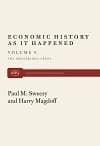
The economies of the capitalist world-individually and as part of a closely knit global system-have been in an ongoing state of crisis since the early 1970s when the long post World War II boom finally came to an end. This crisis has gone through several phases but has not at any time shown signs of giving way to a renewed long wave of prosperity. | more…
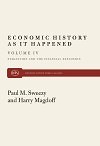
This is the fourth in the magisterial series of essays by the former editors of Monthly Review on the state of the U.S. economy and its relation to the global system. Like its predecessors, this volume focuses on the development of U.S. capitalism as it takes place, and covers the 1980s. The authors stress the profound contradictions of the underlying processes of capital accumulation and identify, before any other economic commentators, the immense implications of the use of the explosion of debt to attempt to solve the problems presented by the underlying stagnation in the real economy. | more…
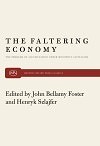
The essays in this volume, by veteran economists as well as younger scholars, are part of a radical attempt to grapple with the problems of advanced capitalist development without discarding the real theoretical breakthroughs made by Keynes. The contributors argue that Keynes was correct in pointing to the economic contradictions stemming from unemployment, incoming inequality, and speculative finance, but failed to consider the class composition of social output, the macroeconomic effects of the modern firm, and the atrophy of investment under conditions of capitalist maturity. | more…
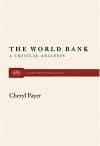
A careful analysis of the Bank’s own policy papers and reports, which outlines its philosophy of development and the concrete effects of its projects. | more…
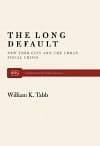
Classic study of the fiscal crisis that gripped New York City — and much of urban America — in the 1970s. | more…
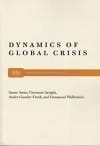
Preeminent theoreticians of the world economy set out their understanding of the long-term dynamics of global capitalism. | more…
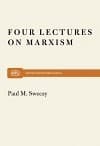
One of the 20th century’s foremost Marxian economists discusses the dialectical method, the contradictions of capitalism, and the future of Marxism. | more…
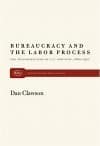
This book makes the argument, supported by rich and extensive historical research into original sources, that it is possible to revolutionize work so that it can be, in the author’s words, “satisfying, creative, and stimulating at the same time that it is materially productive: we can have material abundance along with interesting work.” | more…
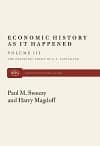
This is the third book of essays on the United States and the world economy produced by the fruitful collaboration of Monthly Review editors Paul M. Sweezy and Harry Magdoff. In these essays, written between 1977 and 1981, the authors assess the results of efforts taken to stabilize the economy after the epochal changes of the early 1970s, the end of capitalism’s “golden age,” by attempts to counteract the effects of inflation, debt dependence, speculation, and financial instability. | more…
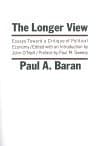
These essays by the author of The Political Economy of Growth and co-author of Monopoly Capital cover the working range of a strong and original mind. They are as diverse as his well-known discussion of Marxism and psychoanalysis, and his expert handling of the politics and economics of development. | more…
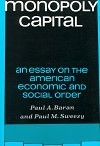
This landmark text by Paul Baran and Paul Sweezy is a classic of twentieth-century radical thought, a hugely influential book that continues to shape our understanding of modern capitalism. “This book… deals with a vital area of economics, has a unique approach, is stimulating and well written. It represents the first serious attempt to extend Marx’s model of competitive capitalism to the new conditions of monopoly capitalism.” — Howard J. Sherman, American Economic Review | more…










